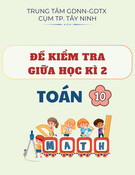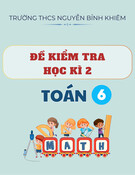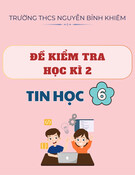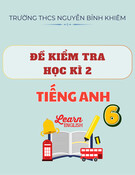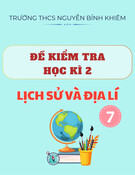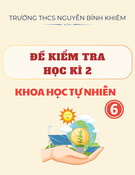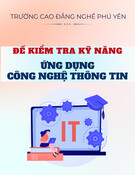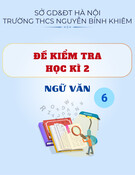
SỞ GIÁO DỤC& ĐÀO TẠO BÁC GIANG
TRƯỜNG PT CẤP 2-3 TÂN SƠN
ENGLISH TEST 15’
NAME:............................................
CLASS:......................................
I.choose the word whose stress is different from the others.(1mark)
1.A.attract B.between C.student D.polite
2.A.discuss B.suppose C.signal D.visit
3.A.september B.algebra C.cinema D.physical
4.A.computing B.compulsory C.statistic D.carefully
5.A.primary B.secondary C.general D.attention
II.Choose the best answer A,B,C, or D.(5marks)
6.In Viet Nam,children start grade 1.........they are 6 years old.
A.which B.while C.when D.how
7.Schooling is .......from the age of 6 to 14.
A.compulsory B.convenient C.necessary D.important
8.How many subjects ........the National curriculum made up of?
A.is B.are C.being D.be
9.The state school system is .........for by the state.
A.pay B.paying C.pays D.paid
10.In England, the advanced students are.........to take a two-year course for “A”level
A.select B.selected C.selecting D.selects
11.He got good marks at his exam because all the lessons.........carefully by him.
A.are revised B.are revising C.had been revised D.to be revised
12.A new secondary school has just been ............in my town.
A.build B.building C.built D.be built
13.An English Speaking Competition is going.........in my school next Sunday.
A.to be held B.to hold C.held D.be held
14.Harry porter.....................in to many languages.
A.has been translated B.have been translated
C.is being translated D.had been translated
15.English.......... as a second language in my country in the future.
A.will use B.is used C.uses D.will be used
16. The entrance..............to universities in VietNam always takes place in July.
A.way B.road C.examination D.path
17.What does each universitydo before making a..........on the offer of a place?
A.request B.decision C.reply D.requirement
18.If you fail the GCSE examination,you.......... not be allowed to take the entrance
examination to the university.
A.will B.would C.did D.are
19. If he worked harder, he......... pass the entrance examination.
A.will B.would C.is going to D.can
20.I......you a letter if I had known your address.
A.would have sent B.would send C.wil send D.sent
21.She would buy a new motorbike if she ........more money.
A.had B.has C.will have D.would have
22.If she had invited me, I......... to see her while I was in DaLat.
A.would come B.would have come
C.will have come D.will come
23.If I had known that you were ill, I..............you.
A.would visit B.am visiting
C.would have visited D.will visit

25.What do you want to do when you...........high school?
A.finish B.are finished C.finishing D.will finish
26.You..... be on time or some minutes earlier for the interview.
A.can B.may C.should D.need
27.What............do you need if you want to become a teacher?
A.qualified B.qualificativeC.qualify D.qualification
28.I like the book...........was written by my best friend.
A.that B.which C.whose D.whom
29.Ho Chi Minh city,......I was born, is the biggest city in VietNam.
A.which B.that C.where D.what
30. What’s the name of the man.....car you borrowed?
A.whose B.that C.what D.who
III. Circle the mistake in each sentence A,B,C,orD( 2 marks)
31 How much terms are there in a school year in England?
A B C D
32.Can you tell me what the two school systems in England is?
A B C D
33.How many core subjects are there on the Vietnam National Curriculum?
A B C D
34.Are English spoken in your classroom?
A B C D
IV.Read the text and decide whether each of the statements is true(T)or false(F)
EDUCATION IN ENGLAND
Every child in Great Britain beween the age of five and fifteen must attend school. There are
three main types of education institutions: primary schools, secondary schools and
universities.
State schools are free, and attendance is compulsory. Morning school begins at nine o’clock
and last until half past four. School is open five days a week. On Saturdays and Sundays there
are no lessons. There are holidays at christmas, Easter and in summer. In LonDon as in all
cities there are two grades of state schools for those who will go to work after fifteen: primary
for boys and girls between the age of five and eleven, and secondary schools for children from
eleven to fifteen years.
The lessons are reading, writing, the English language, English literature, English history,
georgraphy, science, Nature study, drawing, painting, singing,woodwork and drill(physical
training)
35.Children of all ages in Britain have to go to school. ...........................
36 Three main types of educational institutions in England ..........................
are elementary, secondary and universities.
37Students in state schools don’t have to pay fee. ..........................
38.Morning school is from nine o’clock to a quarter ..........................
past four.
39.School is open from Monday to Friday. ..........................
40.English students don’t go to shool at christmas, ..........................
Easter and New year.
41. There are state schools for those who will go to work ..........................
after fifteen.
42.Secondary schools are only for 15-year-old children. .........................
keys

I.(1 mark)
1.C
2.C
3.A
4.D
5.D
II.(5 marks)
6.C 7.A 8.A 9.D 10.B 11.C 12.C 13.A 14.A 15.D 16.C 17.B 18.A
19.B 20.A 21.A 22.B 23.C 24.B 25.A 26.C 27.D 28.B 29.C 30.A
III.(2 marks)
31.A
32.D
33.D
34.A
IV.( 2 marks)
35.F
36.T
37.T
38.F
39.T
40.F
41.T
42.F

SỞ GIÁO DỤC& ĐÀO TẠO BÁC GIANG
TRƯỜNG PT CẤP 2-3 TÂN SƠN
ENGLISH TEST 45’
NAME:............................................
CLASS:.............................................
I.Pick out the word whose underlined part is pronounced differently from that
of the others.(2marks)
1.A.cats B.develops C.equals D.students
2.A.feels B.stops C.arrives D.loves
3.stopped B.lived C.moved D.stayed
4.decided B.wanted C.demanded D.supposed
II.Choose the best answer A,B,C,or D.
1.........many people are there in your family?
A.which B.when c.what D.how
2.What is your mother’s.........? She is a doctor.
A.name B.work C.job D.profession
3.Does your father .......a hand with cleaning the house?
A.work B.give C.try D.take
4.I always try to help...... household chores when I have free time.
A.in Bwith C.at D.of
5Her main responsibility is ............her two small children.
A.look B.looking C.to look D.looks
6Do you think a close friend should share joy and sadness......you?
A.on B.beween C.with D.at
7........my English text book any where? I can’t find it.
A.Do you see B.Have you seen C.Did you see D.Are you see
8.His father..........20 short stories sofar.
A.has written B.writes C.wrote D.write
9.He was the firsty man .....at the conference.
A.arrive B.to arrive C.arrives D.arriving
10.Do you agree that a happy marriage should be based.....love?
A.in B.on C.at D.of
11.Do you think it is a good idea to have three or four generations.......under one
roof?
A.to live B.live C.lives D.living
12.........you ever attended a VietNamese wedding party?
A.Do B.Did C.Have D.Are
13.The wedding day is carefully.......by the groom’s parents.
A.decided B.chosen C.caculated D.selected
14.In the past,marriage is traditionally.........by parents.
A.arranged B.put C.placed D.organised
15.In vietnam people often......questions about ages, marriage,income.
A.ask B.tell C.talk D.say

16.The conical leaf hat is one of the typical symbol.....vietnamese culture.
A.in B.of C.at D.on
17.The vietnamese students enjoy........team sports such as football and volleyball.
A.play B.to play C.played D.playing
18.Peop sometimes .....not only through words but also through body language.
A.say B.communicate C.exchange D.take
19.Do you think that the best way of attracting some one’s attention is by.........
A.to wave B.wave C.waved D.waving
20.Is pointing at some one .........rude in your country?
A.consider B.to consider C.considered D.considering
III.Read the text and answer the questions below(4 marks)
When we have guests to our houses, we should be very polite to them, welcome
them as warmly as possible and try to behave properly to become a welcome guest if
you are invited to any formal or informal get-togethers.
It is interesting, and sometimes very important to learn about the standards of
courtesy in different cultural areas of the world so that we can practise them well and
avoid awkwardness in case we get a chance to visit a person or a community of
unfamiliar social customs.
The American, for instance,tend to be formal when they’re receiving company or
coming for a social engagement. On the whole,women don’t usually shake hands
when they are introduced to eachother but men do. When a man and a woman are
introduced,shaking hands are up to the woman.And punctuality, which means
arriving on time,is probably one of the most necessary and graceful manners in public
relations.Most people consider it impolite and inconvenient to arrive at an important
appointment later than the time agrreed up.
1.What should we do when we have guests to our house ?
.........................................................................................................................................
.........................................................................................................................................
2.What should we do when we are invited to any formal or informal get-togethers?
.........................................................................................................................................
.........................................................................................................................................
3.Why is it important to learn about the standards of courtesy in different cultural
areas of the world?
.........................................................................................................................................
.........................................................................................................................................
.........................................................................................................................................
4.What is the most necessary and graceful manner in public relations?
.........................................................................................................................................
.........................................................................................................................................

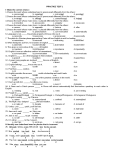
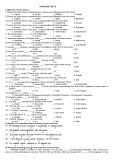
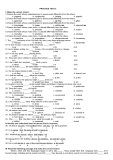
![Đề kiểm tra Tiếng Anh 12 trắc nghiệm: [Kinh nghiệm/Mới nhất/Chuẩn nhất]](https://cdn.tailieu.vn/images/document/thumbnail/2011/20111010/portsmouth2518/135x160/lesson_8_0966.jpg)
![Đề kiểm tra Tiếng Anh 12 trắc nghiệm: Tổng hợp [Năm]](https://cdn.tailieu.vn/images/document/thumbnail/2011/20111010/portsmouth2518/135x160/lesson_1_1279.jpg)
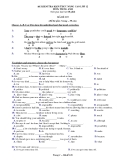
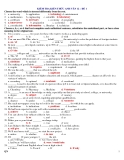
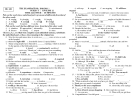
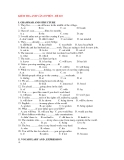
![Đề kiểm tra Tiếng Anh 1 tiết trắc nghiệm [năm] mới nhất](https://cdn.tailieu.vn/images/document/thumbnail/2011/20111008/chelsea2518/135x160/kiem_tra_anh_van_45_ph25_5667.jpg)

![Đề thi Tiếng Anh có đáp án [kèm lời giải chi tiết]](https://cdn.tailieu.vn/images/document/thumbnail/2025/20250810/duykpmg/135x160/64731754886819.jpg)
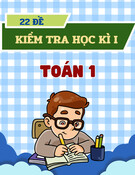
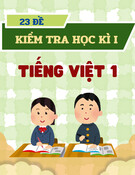

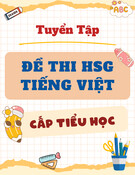
![Đề thi học kì 2 Vật lý lớp 11: Đề minh họa [Mới nhất]](https://cdn.tailieu.vn/images/document/thumbnail/2025/20250709/linhnhil/135x160/711752026408.jpg)
